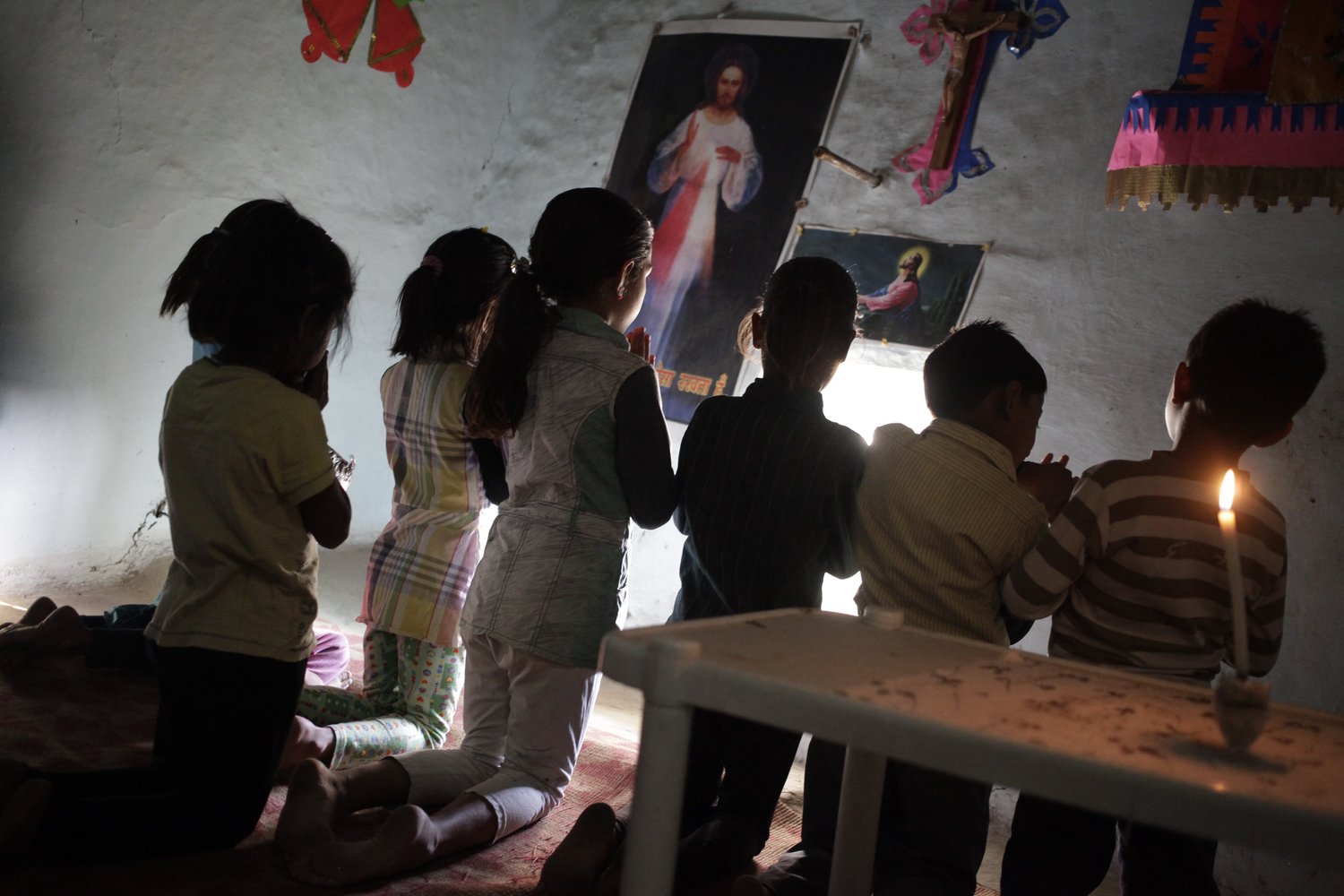
Cork’s main maternity hospital has not received any complaints about pro-life activities near-by, including vigils, despite an activist group saying the activities showed the need for ‘safe zones’ outside centres that carry out abortions. The Government has promised to impose these exclusion zones.
A spokesperson for Cork University Maternity Hospital told the Examiner that “to date, CUMH has not received any complaints from patients regarding the protests.” He also explained that alleged protests are very “infrequent” and “typically consist of between two and four [people]”, take place outside the gates of the hospital, but access through the gates has never been blocked.
The Government has previously committed to bringing in legislation that would create “exclusion-zones” in the vicinity of facilities that provide or administer abortions. Within these zones it would be a criminal offence to manifest any visible pro-life presence.

A father’s active involvement in his children’s lives underpins their later ability to self-regulate and problem-solve, according to a vast new study, published in the journal Pediatric Research this past summer.
Led by Tsuguhiko Kato, a researcher at Japan’s National Center for Child Health and Development, the study started with over 100,000 Japanese babies born between January 2011 and March 2014. The researchers narrowed the group to a sample of 28,040 children.
At intervals of six months, from one month of age to their third birthday, each child’s mother was asked to rate the father’s participation in early child-rearing, including feeding, changing diapers, bathing, dressing, playing at home or outdoors, and putting the child to sleep. Japanese fathers are typically less involved in child-rearing than North American fathers, but when the researchers examined the children’s milestones at age 3, they discovered that children whose fathers invested more time in their care showed better gross and fine motor skills, problem solving, and social skills than children whose fathers were not as involved.
Moreover, “the risk of developmental delay in children with highly involved fathers was 24% lower,” said Dr. Kato.

UK Police have confirmed that they will not bring charges against a pro-life volunteer whom they arrested while praying silently near an abortion facility in March.
Following a six-month investigation, West Midlands Police also issued an apology to Isabel Vaughan-Spruce for the length of time to reach the decision not to prosecute her.
The charitable volunteer was arrested for praying in a “buffer zone” surrounding an abortion facility. The zones, introduced by local authorities, bans prayer and other activities considered to be protest against abortion.
“This isn’t 1984, but 2023 – I should never have been arrested or investigated simply for the thoughts I held in my own mind. Silent prayer is never criminal,” commented Ms Vaughan-Spruce.
She added: “it’s important to highlight the extremely harmful implications of this ordeal not just for myself, but for everyone concerned with fundamental freedoms in the UK. What happened to me signals to others that they too could face arrest, interrogation, investigation, and potential prosecution if caught exercising their basic freedom of thought”.

The International Society for Civil Liberties and Rule of Law (Intersociety) has condemned the kidnapping of more than 30 people across Nigeria’s Enugu State, including a Catholic priest, and called on police officials in the Nigerian state to either act on the lack of security in the region or leave office.
Father Marcellinus Obioma Okide was abducted last week on his way back to St. Mary Amofia-Agu Affa Parish in the Enugu Diocese, where he serves as parish priest. A prayer appeal has been sent out for the priest’s safe release. Okide is among dozens of people who were taken by armed Fulani bandits in separate locations within Enugu State.
Intersociety condemned the police force in Enugu for “looking the other way” and “choosing to be deaf” as Islamist Fulanis wreak havoc on Christian populations in the Nigerian state and in the entire southeast region of the West African country.
Instead, the authorities are busy killing innocent civilians in the name of a crackdown on the “sit-at-home” order by the Indigenous People of Biafra (IPOB), Intersociety said in a Sept. 19 report.

Estonia’s Evangelical Lutheran Church (EELK) has decided to stop registering marriages on behalf of the State after the Baltic nation approved a law that redefines marriage to include same-sex relationships.
The EELK’s official position is that marriage is the union of a man and a woman.
“If we officiate gender-neutral marriages on behalf of the state, while in the church we bless and officiate marriages that are between a man and a woman, are we dealing with two different marriages?” said Archbishop Urmas Viilma.
Minister of Social Protection Signe Riisalo says that churches have the freedom to decide on the issue. The Family Law Act allows clergy to officiate marriages if they have undergone “civil registrar preparation.” According to Riisalo, clergy are not forced to carry out a marriage if they hold objections.
However, Viilma questions the Act’s protections for clergy who want to hold traditional marriage ceremonies.
“Does the law that stipulates that two ‘natural persons’ can marry each other give meaning to marriage so far as the state goes or does the gender of those people marrying each other provide the meaning to marriage?” he asked.

Vocal warnings have been issued to Members of the Scottish Parliament [MSPs] that assisted suicide legislation can never be made safe.
Dr Miro Griffiths, an expert advisor on disability and spokesman for the Better Way campaign made the comments in opposition to Canadian experts who argue the law in their land is “working well”.
Dr Griffiths said: ” Assisted dying campaigners say that a Scottish system would be different to Canada – stricter and more limited, like Australia and New Zealand.
“The problem with this assertion is that in other nations where the practice is legal, supporters said the same thing. Intention does not necessarily match outcome – and with this issue, it never does”.
“Canada’s law was meant to be narrow and strict. ‘Assisted dying’ was initially for people with terminal illnesses whose deaths were deemed ‘reasonably foreseeable’. However, it quickly became permissive. Disabled people whose deaths are not ‘reasonably foreseeable’ are now eligible. From next year, people with mental illnesses will be eligible as well.
She added that a similar story of expansion can be seen in Belgium and the Netherlands – countries with long-standing euthanasia laws while Switzerland grows more permissive year on year. In California, “assisted deaths have climbed significantly after a mandatory waiting period was cut by 13 days”.
“The direction of travel is always easier access, for more people”, she concluded.

Almost half of pregnancies among 15-24 year-olds in Britain – the so-called ‘Generation Z’ – end in abortion according to a new analysis.
Using data from the UK’s Office for National Statistics, researcher Kevin Duffy says that in 2012, 34% of viable pregnancies for the15–24-year-old cohort ended in abortion; by 2021 this proportion had risen to 45%.
The Department of Health and Social Care (DHSC) has only released abortion data for the first six months of 2022, but extrapolated to a full year, shows that half of all pregnancies for young women and girls below the age of 25, Generation Z, ended in elective abortion (approx. 88,000 live births and 88,000 elective abortions).

For the first time ever, more than one in 10 people in Japan are now aged 80 or older.
National data also shows 29.1% of the 125 million population is aged 65 or older while Japan has one of the lowest birth-rates in the world. In Ireland, around 13pc of the population is over 65.
The country’s elderly employment rate is among the highest across major economies – workers aged 65 or more make up more than 13% of the national workforce.
The country was estimated to have had fewer than 800,000 babies born last year – the lowest number since records began in the 19th century.
In the 1970s, that figure was more than two million.
Prime Minister Fumio Kishida said in January that his country is on the brink of not being able to function as a society because of its declining birth rate.

Fulani herdsmen on Friday killed 15 Christians in southern Kaduna state, Nigeria, sources said.
The attack on Dogon Noma village, Kajuru County came amid disclosure that such attacks have led to the death of 23 pastors and the closure of 200 worship buildings in Kaduna state in the past four years.
Besides taking 15 lives, the assailants also kidnapped 32 Christians from Dogon Noma village, area residents said.
“Fulani herdsmen surrounded the village in their hundreds, shooting anybody in sight; the attack occurred at about 7 a.m.,” David Musa told Morning Star News.
Another resident, Moses Ishaya, said he lost two relatives in the massacre.
“It is with a heavy heart that I notify you about an attack on our community, Dogon Noma village, by Fulani herdsmen on the morning of Friday,” Ishaya told Morning Star News. “The attack has resulted in the killing of two of my family members, who include our sister from Karamai village, who got married at Dogon Noma village, and the second victim, the daughter of my relation, Mr. John Zango.”

A sharp rise in the persecution of Christians in India this year was reported by New Delhi-based ecumenical human rights group, United Christian Forum in its latest report. It shows 525 cases of anti-Christian violence recorded since January. The figure was 505 in the entirety of last year.
In June, the highest 89 cases of violence against Christians were reported. The report comes at a time when India just finished as a host to G20 nations summit attended by US President Joe Biden in the national capital. Some 520 Christians have been arrested for allegedly violating stringent anti-conversion laws in various states.
The report also highlights 54 cases of social discrimination against Christians such as denying access to water sources. The Forum, however, could not record happenings in sectarian violence-hit Manipur as many places in the northeastern state are still inaccessible.
Nearly 200 people were killed, over 300 churches were destroyed and some 54,000 people were displaced amid clashes between predominantly Christian tribal people and Hindu-majority Meitei community.